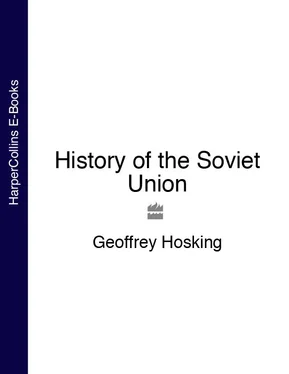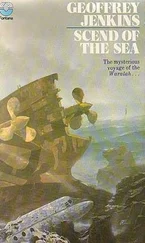1 ...7 8 9 11 12 13 ...33 As soon as he arrived back in Petrograd, Lenin poured scorn on the notion of ‘revolutionary defencism’, conditional support for the Provisional Government, or cooperation with the other socialist parties. The ‘bourgeois’ stage of the revolution, he maintained, was already over, and it was time for the workers to take power, which they could do through the soviets. Russia should unilaterally pull out of the war, calling on the workers of all the combatant nations to convert it into an international civil war by rising against their rulers. Landed estates should be expropriated forthwith, and all other land nationalized and put at the disposal of ‘Soviets of Agricultural Labourers and Peasant Deputies’.
Lenin’s new programme should not have been a complete surprise to those who had read his writings since 1905, but all the same it did represent something of a shift in his thinking. His study of imperialism had led him to the view that the socialist revolution would take place on an international scale, with the colonized nations of the world rising against their exploiters. In this perspective, Russia, as the weakest of the imperialist powers, but also the strongest of the colonies (in the sense that it was exploited by French, German and other capital), was the natural setting for the initial spark of the revolution–though it would need swift support from within economically stronger nations if it was not to die away. Lenin, in fact, had moved close to the position of Trotsky, who since 1905 had been preaching ‘permanent revolution’ on an international scale. Trotsky acknowledged this rapprochement by joining the Bolsheviks in the course of the summer.
Another new facet of Lenin’s thinking was his view that imperialism created the economic prerequisites of socialism–trusts and syndicates, large banks, railways, telegraph and postal services–and that when the imperialist state was smashed, these structures would survive and be taken over by the new proletarian government. Since they were sophisticated and self-regulating, all that would be needed was to ensure that they were used in the interests of the people as a whole, not of a small class of exploiters, and this would be essentially a matter of ‘book-keeping and monitoring’ ( uchet i kontrol ). ‘Capitalism’, he asserted, ‘has simplified the work of book-keeping and monitoring, has reduced it to a comparatively simple system of accounting, which any literate person can do.’
This vision was the real source of Lenin’s confidence in 1917. He seems to have really believed that, through the soviets, ordinary working people could take power into their own hands, and administer complex economic systems. He called his vision the ‘commune state’, taking as his model the Paris Commune of 1871. This introduced a certain contradiction into his ideas, since of course the Paris Commune had originated in precisely the kind of ‘revolutionary defencism’ which Lenin rejected. But the image was to prove useful to him and to confuse some of his opponents. At any rate there proved to be a good deal of support among Bolsheviks for Lenin’s heightened radicalism, and by May most of his programme had been accepted as party policy.
Initially, the Bolsheviks’ position in the new popular institutions was very weak. With the disappointments of the summer and autumn, however, some existing delegates swung over towards the Bolsheviks, while new ones were elected on a Bolshevik mandate. The appeal of the Bolsheviks lay in their programme of ‘peace, land and bread’. Facing a Provisional Government which could not end the war, and which was therefore incapable of carrying out land reform or ensuring food supplies either, the Bolsheviks were able to offer something which nearly all workers, peasants and soldiers wanted. Bearing these promises in their hands, Bolshevik speakers were often able to win over audiences and gradually the new grass-roots popular insitutions as well. This was the case first of all in the factory committees, then in the soviets of workers’ deputies, then in the soldiers’ committees and in some of the trade unions. The failure of the July uprising and the public revelations about German backing for Lenin reduced this support for a time, but it revived and redoubled with the Kornilov affair at the end of August.
This affair has been the subject of much historical controversy, and it cannot be said that it is clear even now exactly what happened. In the last week of August General Kornilov, commander-in-chief of the Russian army, sent troops from the front to Petrograd, evidently with the intention of dispersing the soviets and arresting all the leading Bolsheviks, probably in order to set up a military government. He was thwarted by the action of Kerensky (now prime minister) in declaring him under arrest, by the railwaymen, who blocked the passage of his troops, and by the soldiers of the garrisons south and west of Petrograd, who fraternized with Kornilov’s troops and persuaded them they were fighting on the wrong side. General Krymov, their commander, committed suicide at this disgrace.
The mysterious aspect of the affair is that Kornilov had been appointed by Kerensky only shortly before, with an apparent mandate to tighten the discipline in the army. Indeed, the early stages of the coup itself were coordinated with Kerensky, who then abruptly changed his mind. The whole business seems, in fact, to have been dogged by the insoluble ambiguities of the Provisional Government’s position. Kerensky wanted to restore military discipline in order to be able to go on fighting the war, especially after the débâcle of the June offensive, but at the same time he knew that the measures Kornilov proposed–abolishing soldiers’ committees at the front, restoring the full power of officers, imposition of full military discipline among rear garrisons, in armament factories and on the railways–would alienate his allies in the soviets, and probably provoke a popular rising with Bolshevik backing. In the end Kerensky could not have it both ways, and he came down on the side of the soviets, in a manner that exposed Kornilov to maximum humiliation.
What is quite certain is that this fiasco dramatically revived the fortunes of the Bolsheviks. It left the High Command confused, demoralized and resentful of the Provisional Government. Alexeyev, Kornilov’s immediate successor, resigned in disgust in the middle of September, saying, ‘We have no army’, and describing his fellow officers as ‘martyrs’ in the face of the general indiscipline. By contrast, the workers’ militias, especially in Petrograd itself, gained enormously in status and self-esteem: under their new name of ‘Red Guards’ they gained many new recruits during September and October. The Bolsheviks’ view of events generally seemed to have been vindicated, and nearly all popular institutions, especially the soviets, swung sharply in their direction. From the beginning of September the Bolsheviks had a majority in the crucial Petrograd Soviet, and Trotsky became its chairman. Moscow soon followed suit, and it became clear that the elections to the second All-Russian Congress of Soviets would result in the Bolsheviks becoming the largest single party.
To forestall any possible repeat of the Kornilov affair, the Petrograd Soviet established on 9 October a Military Revolutionary Committee (MRC), to organize the ‘revolutionary defence’ of the capital against either a military putsch or Kerensky’s reported intention of evacuating the city and letting the Germans (already in Riga, only 300 miles away) occupy it and crush the soviet. The motion to establish MRC was supported by left-wing Mensheviks and Socialist Revolutionaries; its first chairman was a Socialist Revolutionary. All the same, the majority of its members were Bolsheviks. The new body immediately set about coordinating the Red Guards and, helped by the impassioned oratory of Trotsky, persuading the garrison troops to recognize it rather than the Provisional Government as their ultimate source of authority.
Читать дальше












